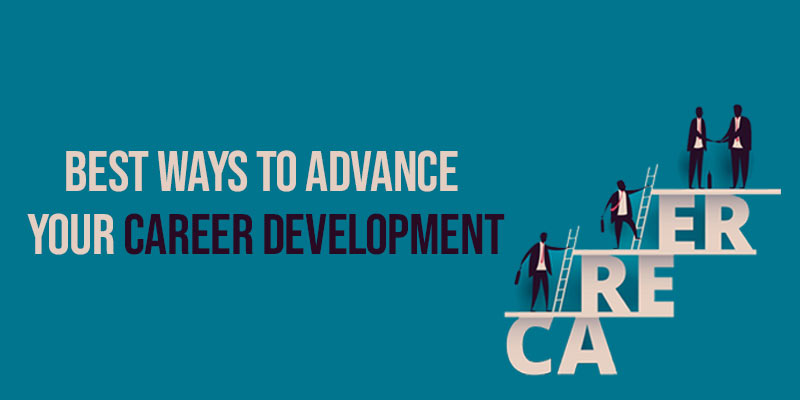Career growth goes well when you can set clear, attainable goals that help you move forward in your chosen field. It means keeping up with your education and learning more about ways to improve your career. No matter what field you are in, it can help your career a lot to know how career development works and what you can do to improve it.
In addition to making you feel more motivated at work, the chance to move up in your career can help you earn more money. There are many ways to move up in your career, such as training and more, and you should look for these chances whenever you can. In this Blog, we talk about how to move up in your career and give you preparation tips on how to do so.
Why is it important to understand how you can move up in your job?
If you want to be happy in your job, it’s important to know how you can move up in your career. Having a clear idea of where your job can take you is a good way to keep yourself going.
Different people have different ideas about what it means to move up in a career and professional development. Some people want to become partners or top executives. Some want to learn new skills and become experts in their field. Others want to start their own successful business, get their research published, and do other things. To grow in your profession you can learn Essential New Skills To Learn to Advance Your Career.
Your recruiter can give you a job opportunity in a number of different ways. You might get a promotion or a pay raise, for example. You could also get training to become more flexible or specialised in your job, or your boss could just give you more responsibilities and grow as a professional.
You should talk to your boss early on, preferably during the interview process, about how you can move up in your job. You should find out ahead of time if the place you want to work will help you move up in your career in the long run. If not, you might have to change jobs sooner than you or the company would like.
What is Career Development?
Career development is a continuous process that helps you advance your career. It could include any of the following.
- Identifying your interests and abilities.
- Having career objectives.
- Progressing for a number of years in the same business.
- Changing jobs when your skills and interests change.
- Although you are ultimately in charge of your own professional growth, your recruiter might also be interested in it.
Tips to help you get ahead in your Career
When planning your career development, think about these steps:
Find out What you Like
At any age, you can look into things that interest you. By doing this, you might be able to figure out what career to go into or if you are ready for a change. Think about other jobs that interest you, these may be good places to look for freshers jobs opportunities.
Figure out your Dream Job
A good career development plan starts with finding a professional industry or job to aim for. How you set goals to advance your career will depend on what you care about and what you value. When picking a job, think about the following:
List your good points: Make a list of your skills and interests, and then think about what kinds of jobs might fit those things.
Determine values and purpose: Your most important beliefs are important, and you should choose a job that fits with them. Finding a reason for your work will make you happier and push you to move up in your career for learning and development jobs.
Visualize your ideal career: Seeing your ideal job can help you make a good plan for your career development. To do this, think about your ideal work environment, the balance between work and life, your salary, and other things that are important to you. You can search for your dream jobs from freshers jobs in Mumbai.
Set Goals
Setting clear goals for your career can give you something to work toward as you move up in your field. Setting SMART goals can be helpful when setting career goals.
Get better at Things
what is professional skills? Getting new skills that are useful to your career goals can help you move forward. Here are four soft skills that are useful in almost every job:
Critical thinking: When you think critically, you look at facts and data to find problems and figure out how to solve them. Learn more hard skills related to your job to make it easier to find and solve problems. This will help you improve your critical thinking skills.
Emotional intelligence: To have emotional intelligence, you need to be able to understand what people say and how they act when they don’t say anything. This is a very important skill if you want to set clear goals and communicate them to your coworkers, managers, and customers.
Teamwork: Teamwork is when people share ideas and help each other with tasks to reach goals and make the workplace a pleasant place to be. Listen to your coworkers and try to include them in activities as you learn how to work as a team.
Negotiation: Negotiation is a conversation that helps two or more people come to an agreement. It can be a useful skill at work, like when you need to solve a conflict with a coworker or talk to your boss about a raise. Getting better at this can also help you get along better with your team and clients as a professional development goals.
Make more Connections
You can build a large professional network to help you get where you want to go in your career. To grow your network, think about:
- Taking part in conferences in your field
- Joining online groups for professionals
- Setting up interviews with successful people in your field can help you learn more.
- Getting involved with a professional group.
- Your network can help you find a job that fits with your career goals or help you set goals that you can reach.
Get an Instructor
Mentors are people who help young professionals grow in their careers by giving them advice and direction. A mentor will give you a trusted, experienced point of view that can help you figure out what you want to do with your career. You might want to meet with your mentor once a week or once a month to talk about your successes, set more goals for your career development and keep yourself motivated.
Join the Career Development programme at your Company
Most bosses want their employees to get better at skills that are important to their job or business. These programmes are great for people who have finished graduation and want to learn valuable skills on the job. Consider signing up for a career development programme at your current job if it has one or know how to get a job as a fresher.
Making a plan for Career Growth
How to develop skills? A career development plan can help you come up with a detailed plan that you can use to reach your career goals. Follow these steps to make a plan that you can carry out and how to set up goals.
Find out what your long-term goal is: Having a long-term goal will help you narrow down your career interests. This could be a dream job title, freshers salary or way of living.
Set short-term goals to help you reach your long-term goal: Breaking up your big goal into smaller steps will make it easier to finish tasks and keep you motivated.
Make tasks that can be done: You can make a list of things you can do, classes you can take, or programmes that will help you reach your goal. A mentor can give you advice on what kind of training you should do.
Check how you are doing: Keeping track of your progress is easier if you know what tasks are important and how you are getting closer to your goal. You could make a list of your current responsibilities, make a note of which ones are most in line with your career development goals, and try to focus on those at work.




